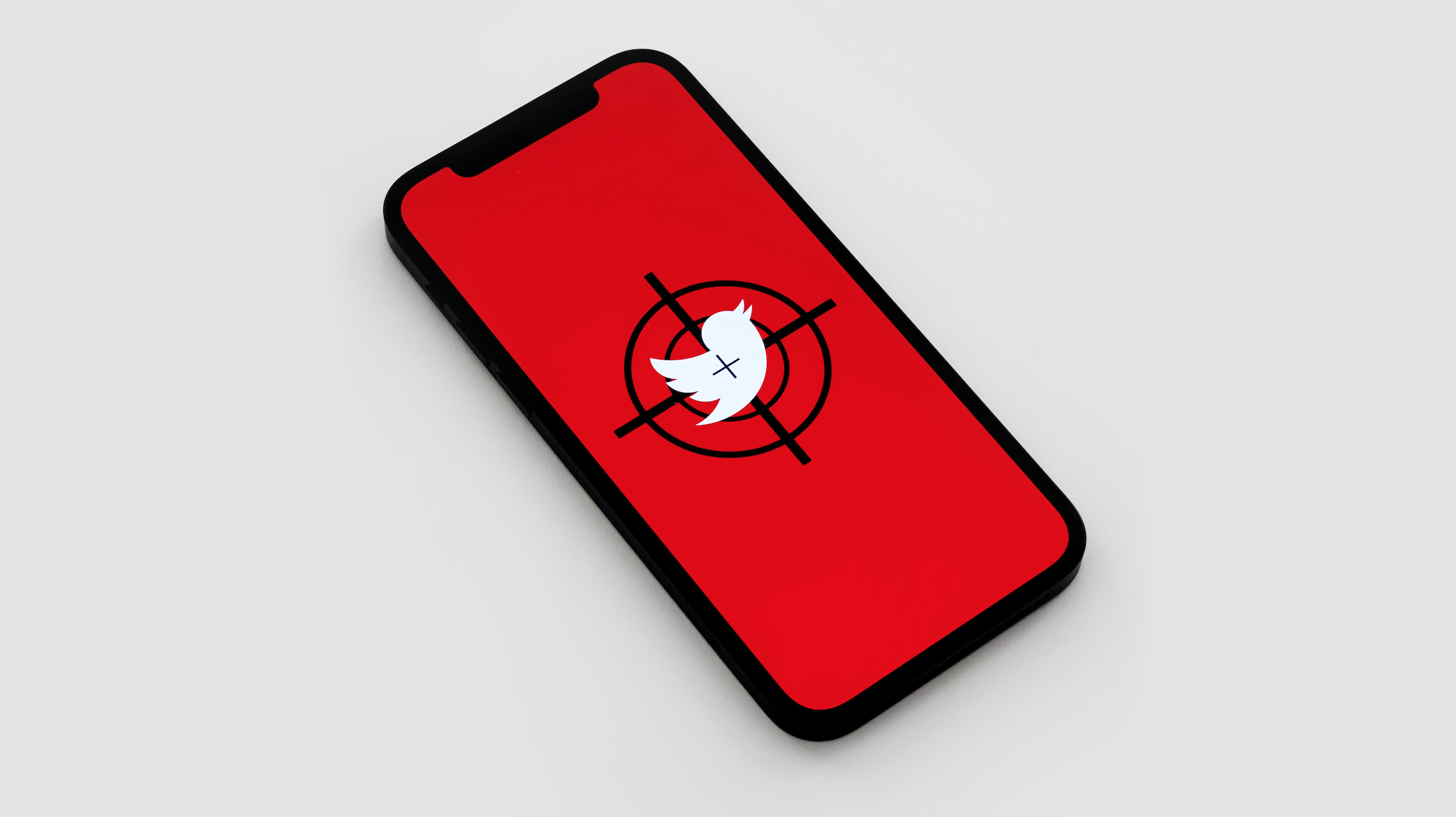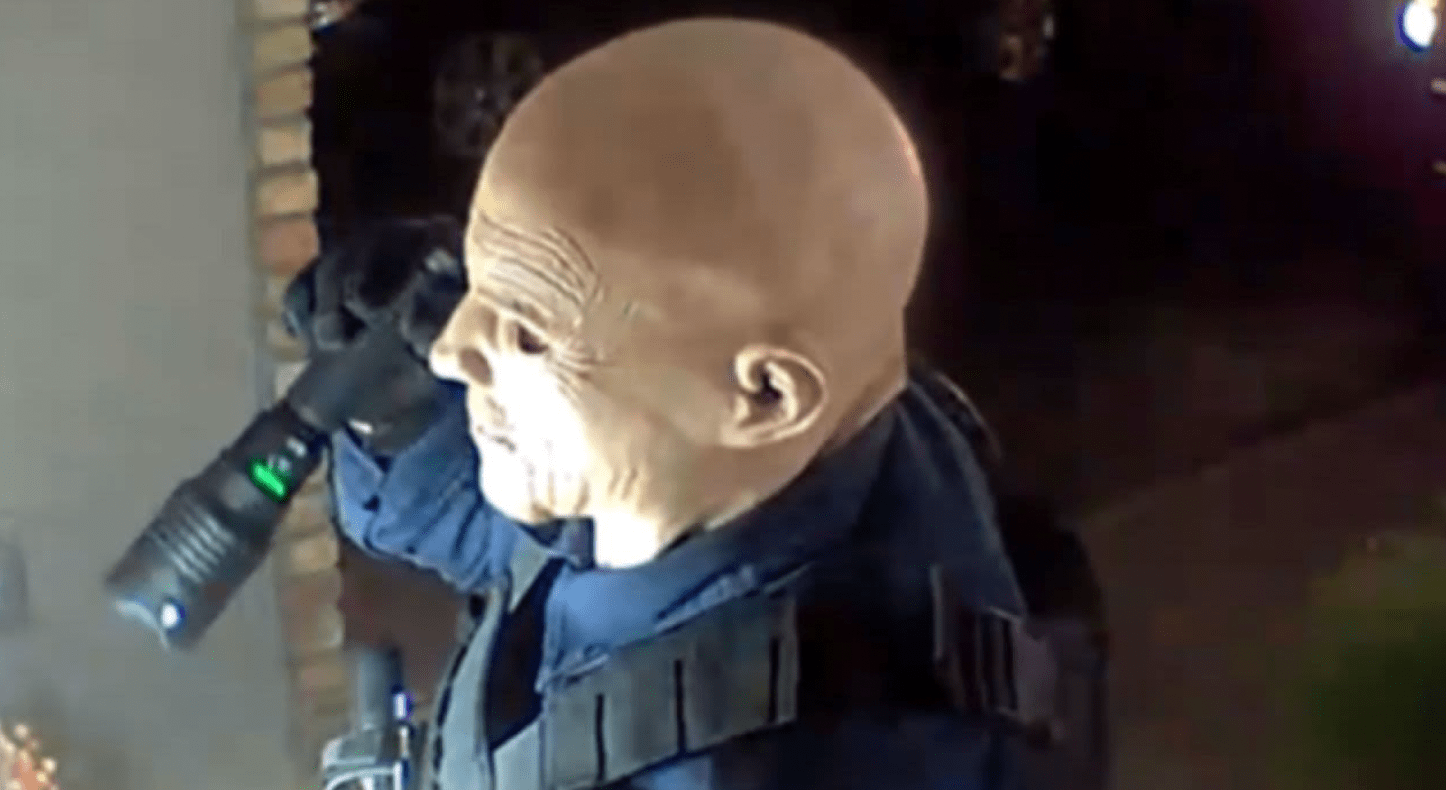You may not know Taylor Dahlin by name, but you’re probably familiar with some of her work. Last year, while mayoral and city council hopefuls squared off in Minneapolis and St. Paul, she emerged as one of the most consistent and relentless researchers investigating the candidates on Twitter.
Dahlin isn’t a journalist by trade, just a curious and very online person who got into tweeting about local politics a few years ago and did more and more of it as last year’s election got nearer. Her avatar, a little duck wielding a knife, has for many years delivered updates about Minneapolis politics and local news.
“She just digs and digs and digs,” says John Edwards of the local politics and culture site Wedge Live, where Dahlin is an occasional podcast guest. “She finds these weird things out. I’d call her an investigative journalist.”
But the account where she’s done most of that digging, under the handle @taylr, has been suspended since November. And she says some of the very reporting she did around the election last year led to her being banned.
Dahlin’s issues with the social media platform started right around the time Twitter’s new private information policy, which prohibits sharing “media of private individuals without the permission of the person(s) depicted,” went into effect. The fuzzy set of standards has already enabled far-right trolls to get journalists and antifascists banned; “Neo-Nazis Are Gaming Twitter’s New Rules, Exactly Like People Warned,” VICE reported last month.
If Twitter's opaque rules allow right-wing trolls to take down established journalists and researchers, what’s stopping political candidates from manipulating the system to block citizen journalism? More broadly, what does it mean when Big Tech can deplatform anyone it sees fit, without providing anything in the way of explanation? And how does all of this connect to one city council race in a diverse and densely populated ward of Minneapolis?
To get to the bottom of it—and I’m very sorry to do this, mere days after our new council members were sworn in and we officially put the 2021 election behind us—we’re going to have to talk about the Mickey Moore campaign.
“Mickey Moore is not a serious candidate, and we shouldn’t even be doing this episode,” Wedge Live’s Edwards laments during an August 3 podcast on the soon-to-be-disgraced candidate, before Dahlin, one of his guests, gets into the convoluted business of his campaign.
The basics, for those who are unaware or have willfully forgotten: Mickey Moore ran in the Ward 9 race for Minneapolis City Council last year. Early on in his candidacy, it was revealed that he’d listed an apartment in the Eighth Ward on his campaign filings, though he’d have to live in the Ninth Ward to serve there.
The bigger issue was that it looked like the cop-friendly oddball candidate didn’t live in Minneapolis at all. Dahlin found one Oak Grove home and another in Ward 8 that were owned by his mother, and through his wife’s then-public Facebook account, she learned their child was enrolled in Oak Grove's school district. Moore’s wife had posted photos of mail delivered to their home, which listed an Oak Grove mailing address.
“I had basically shown all that on Twitter: This is where he lives, this is this. We followed along with this… until basically election day,” Dahlin says. The story blew up on Twitter, where several now-inaccessible tweets racked up hundreds or thousands of interactions. “I don’t know why so many people really followed me there—I think it was just the weirdness of that whole story,” she says of the saga.
Dahlin’s first run-in with Twitter came in July, a few months before the election. Her account, along with Wedge Live and a few other prolific Twitter users/local government watchdogs like Jason Garcia (@jasoncomix), Reed Eliot (@rerahrich), and Ashley Fairbanks (@ziibiing) all found themselves in “Twitter jail,” the temporary account lockdown that hides an individual’s tweets and prevents them from posting due to a violation of Twitter’s terms of service.
Their crime? They’d shared campaign documents that listed home addresses—all of which were publicly available on Hennepin County’s website—including his “Moore for Ward 9” finance registration. Filed in February, it lists a home address in Ward 8. Twitter would only reinstate their accounts if they deleted the tweets.
“My speculation is that [Moore] and his campaign manager abused the report function,” Eliot says. “If you create a bunch of sock accounts and focus all your reporting on a few tweets, Twitter will eventually listen.”
Dahlin, too, believes they were all reported by Moore or his campaign manager, Alex Minn, who was “abusing the report system completely.”
“It was horrifying, and fascinating, how many accounts [Minn] would create in a day just to send tweets to me,” Edwards says. “There were maybe two or three days where I felt like he woke up and created half a dozen accounts with some variation of ‘edwardsisbad.’”
Racket was unable to reach Alex Minn for comment, and Moore denies having any involvement with the suspensions. “I have no idea what you’re talking about,” Moore told Racket. “I don’t have anything to do with, you know, tweeting. It’s just not my thing.”
None of these alleged sock accounts exist anymore, and the tweets—many of which were once visible in this thread—have disappeared with them, but Racket has reviewed screenshots provided by the Twitter users mentioned above that confirm the behavior.
Edwards says he understands the need to keep people from posting addresses, but with the Moore residency questions, “The address is kind of at the heart of the issue.” He felt he had a justified reason to appeal the suspension, but with the appeals process, you’re at Twitter’s mercy. They can take as long as they want to reach a verdict, and your account will be unusable for the duration of their deliberation, “which is hard,” he says, “if most of what you do is on Twitter.”
Edwards spent a weekend tweeting from an alt account, @WedgeLive4Women, before giving up and deleting the tweets. Dahlin, Eliot, & co. did the same, and were also reinstated.
For a while, things were relatively quiet. The campaign went on and got weirder. In October, the Star Tribune editorial board endorsed Moore, then withdrew its endorsement after their news staff reported on the scrutiny around Moore’s residency—the red flag Dahlin had raised months ago. Democratic-socialist candidate Jason Chavez, whom the Strib Editorial Board declined to endorse, eventually won the November election in Ward 9 by a hefty margin.
Dahlin felt somewhat vindicated. “It was really frustrating,” she says. “Because it felt like a lot of the Mickey stuff that I was posting throughout the year—for a lot of it, it felt like I was shouting into a void.” But the run-ins with Twitter weren’t over.
Someone—and Dahlin suspects it was someone involved in Moore’s campaign—continued to report her old tweets, and eventually, it worked. They flagged a tweet in which she’d shared the address of a Jacob Frey campaign event, one of the gatherings he held at people’s homes before the election.
“He wasn’t doing traditional campaign stops, he would go to people’s yards and speak there,” Dahlin says. “So I had shared one of those events, which of course contained someone’s address, because it’s a public event.”
That old tweet was enough for Twitter to suspend the account again.
There was an immediate outcry from folks who’d come to rely on Dahlin’s citizen journalism during the election, who tweeted using the #freetaylr hashtag and tagged Twitter Support, hoping for a speedy resolution to the suspension. Dahlin appealed the decision, but her request was denied. The account, and the years of information contained therein, remains on lockdown.
It’s not that Twitter reports shouldn’t exist, of course. But to those who found themselves facing off with the platform last year, it seems like the rules are being applied arbitrarily or at least unevenly, silencing folks who are acting in good faith while white supremacists and trolls slip through the cracks.
“Just this morning I got a notice that a guy peddling anti-Asian conspiracy theories ‘didn't break the rules,’ so he can keep posting,” Eliot says. “But I had to delete my tweets.”
Says Edwards: “It feels like the rules are being weaponized in the wrong direction.”
In December, about a week after Dahlin’s indefinite suspension, Twitter announced that it was testing changes to its handling of reported tweets. The platform would be heading in a more “human-first” direction by “refocusing on the experience of the person reporting the Tweet.”
“What can be frustrating and complex about reporting is that we enforce based on terms of service violations as defined by the Twitter Rules,” senior Twitter UX manager Renna Al-Yassini said in a statement. “The vast majority of what people are reporting on fall within a much larger gray spectrum that don’t meet the specific criteria of Twitter violations, but they’re still reporting what they are experiencing as deeply problematic and highly upsetting.”
In reality, the reports system has just gotten more complicated. (“I love how Twitter made it so it now takes like 20x more clicks to report someone,” a friend recently noted.) It remains unclear what group of people or algorithm at Twitter is the arbiter of suspensions and reinstatements.
“I don’t even know what it is, who’s deciding, how much of it is automated… it’s invisible,” Edwards says. “I don’t know what the process is.”
Dahlin can’t help but worry about accounts like Wedge Live—are they at risk of suspension because they’ve got a strike on their record? It only took two reported tweets for the app to take @taylr down, and since the suspension, she’s created two new accounts using variations of the “taylr” handle that have been suspended as well. Whoever’s applying the rules at Twitter may be doing so indecipherably, but once they’ve got your number, they’re watching.
“What’s really scary is like, the thought of being banned permanently over something like this,” Edwards says. And that’s where it looks like Dahlin’s original account, which had about 2,500 followers and had been in use since 2008, is right now. All that research and context—poof—no more.
“It feels very retaliatory,” Dahlin says. She notes that other local investigative reporters have posted addresses and faced no repercussions because, she believes, of their blue-check verification status. “It’s almost like they’re punishing people who are trying to be citizen journalists and trying to reveal info,” she adds.
“There are a lot of joke campaigns and far-fetched candidates in Minneapolis politics,” Edwards says. “But rarely do the candidate and the campaign manager have time to be full-time internet trolls.”
Having successfully silenced one of their loudest critics this time around, and with Minneapolis City Council elections coming up again next year, what’s stopping a full-time troll from trying again?
Update, January 14, 2022: The day after this story ran, an anonymous Twitter engineer reached out to request the case number for Dahlin's appeal. By the following morning, one and a half months after Twitter banned her account, she'd been reinstated.







